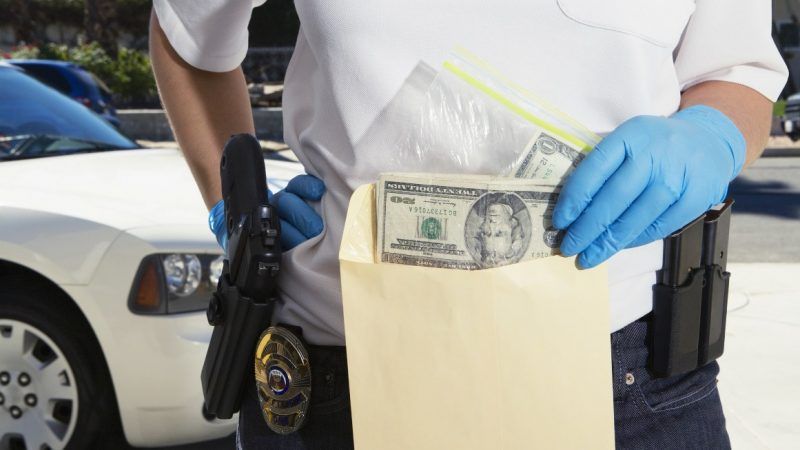Michigan County Prosecutor Charged With Embezzling Asset Forfeiture Funds
And he's far from the first prosecutor to be caught with his hand in the asset forfeiture cookie jar.

Michigan Attorney General Dana Nessel announced Tuesday that her office had charged Macomb County Prosecutor Eric Smith and three other county officials with a "litany" of felony crimes for embezzling and misusing funds seized through asset forfeiture.
Smith is charged with 10 criminal counts, including embezzling, official misconduct, evidence tampering, conspiracy to commit forgery, and conducting a criminal enterprise.
The charges follow a year-long investigation that was launched after a successful public records lawsuit revealed more than $100,000 in questionable expenditures from Macomb County's asset forfeiture fund. Authorities now estimate the Smith and other officials embezzled roughly $600,000 since 2012.
According to the attorney general's office, the investigation "found that Smith and other defendants used the money to buy flowers and make-up for select secretaries, a security system for Smith's residence, garden benches for staffers' homes, country club catering for parties, campaign expenditures and more."
Under civil asset forfeiture laws, police and prosecutors can seize property—cash, cars, and even houses—suspected of being connected to criminal activity such as drug trafficking.
Law enforcement groups say asset forfeiture is a vital tool to disrupt organized crime. However, civil liberties groups say there are too few procedural protections for innocent property owners, who bear the burden of challenging seizures in court, and too many perverse profit incentives for law enforcement.
If found guilty, Smith would be far from the first public official to be caught with his hand in an asset forfeiture cookie jar. Last year, a local Pennsylvania newspaper reported that the Lancaster County district attorney used forfeiture funds to lease a Toyota Highlander SUV.
In Illinois, former La Salle County State's Attorney Brian Towne faced criminal charges for misconduct and misappropriating public funds after he allegedly spent asset forfeiture funds on an SUV, WiFi for his home, and local youth sports programs. Town created his own highway interdiction unit and asset forfeiture fund for his office, a move the Illinois Supreme Court later ruled was illegal. The case against Towne was dismissed last year after a judge ruled his right to a speedy trial had been violated.
In 2017, Philadelphia Weekly, in collaboration with City & State PA, reported that the local D.A.'s office had spent $7 million in asset forfeiture funds over the last five years, including "at least one contract that appears to have violated city ethics guidelines—construction work awarded to a company linked to one of the DA's own staff detectives."
A 2016 Department of Justice Inspector General audit found that an Illinois police department spent more than $20,000 in equitable sharing funds on accessories for two lightly used motorcycles, including after-market exhaust pipes, decorative chrome, and heated handgrips.
Or there was the time a Georgia sheriff purchased a $90,000 Dodge Viper with forfeiture funds for the department's DARE program. Or there was a different Georgia sheriff who bought a $70,000 Dodge Charger Hellcat (707 horsepower and tinted windows, quite naturally) with forfeiture funds.
"In order for citizens to maintain trust in the institutions of government, public officials must, at all times, conduct themselves in accordance with the laws of our state," Nessel said in a press release. "When public officials fail to do so, the people must have confidence that they will be held to account, fairly, and without any special treatment based upon their status as a public official."



Show Comments (24)